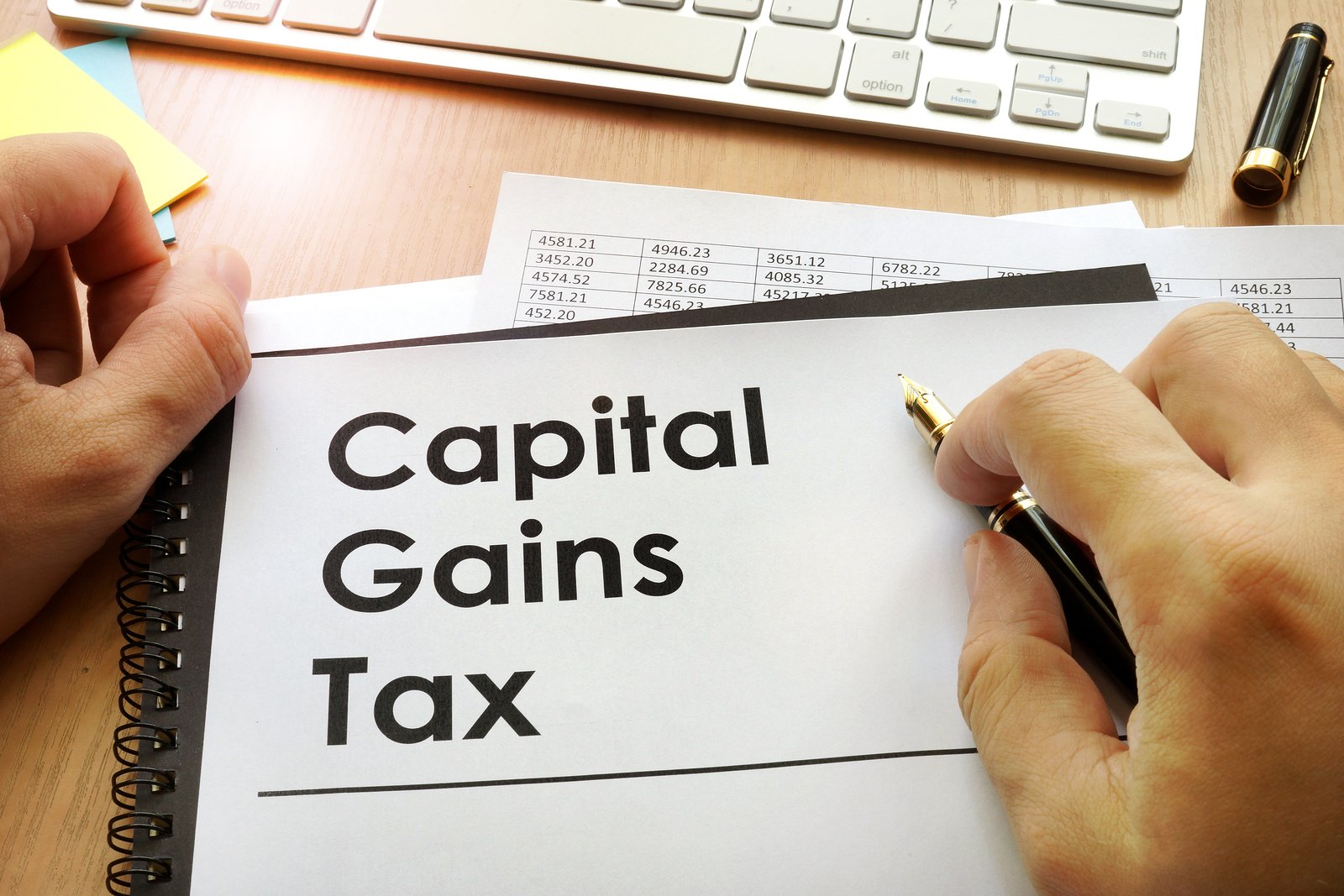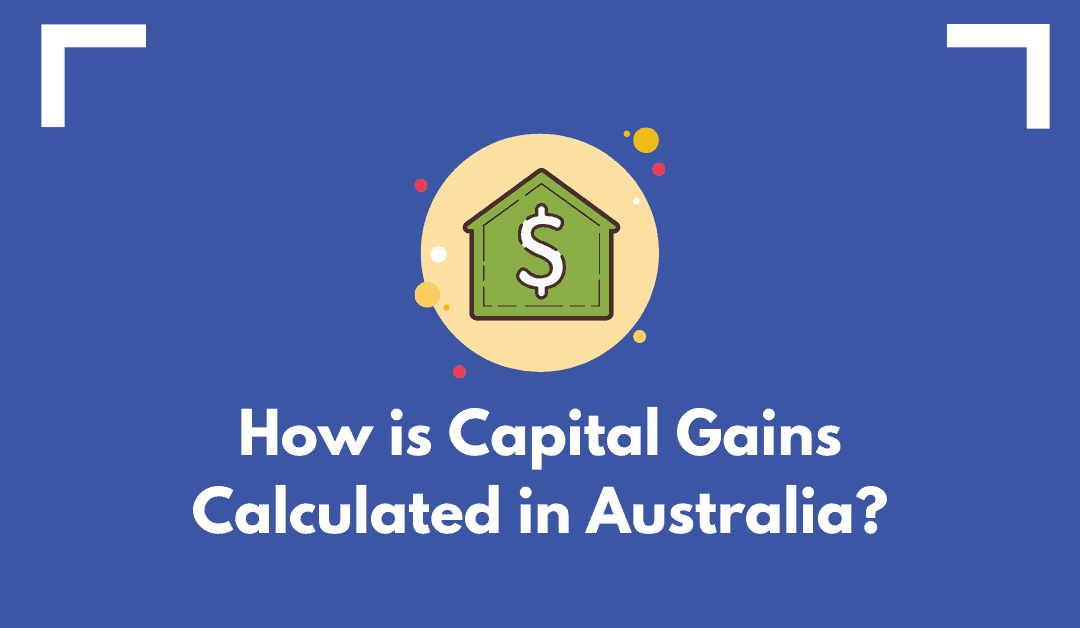
Guide to Capital Gains Tax & Calculator
In Australia, understanding capital gains tax (CGT) and its implications is crucial for individuals, businesses, and investors. Calculating and managing capital gains can be complex, but with the help of a reliable capital gain calculator, it becomes easier to determine tax obligations accurately. In this article, we will provide an in-depth overview of capital gain tax calculations, explore the various aspects of capital gains tax in Australia, and discuss the importance of using a capital gain calculator for property transactions, business sales, and other capital gain scenarios.
1. What is Capital Gains Tax?
Capital gains tax (CGT) is a tax imposed on the profit earned from the sale or disposal of certain assets, such as real estate, shares, and business assets. When you sell an asset for more than its original purchase price, the profit you make is considered a capital gain. The Australian Taxation Office (ATO) requires individuals and businesses to report and pay tax on these capital gains.
2. Understanding Capital Gains Calculation
To calculate capital gains, you need to determine the asset’s cost base (the original purchase price) and the capital proceeds (the sale price). The formula for calculating capital gains is:
Capital Gains = Capital Proceeds – Cost Base
The cost base includes the original purchase price, incidental costs (e.g., legal fees, stamp duty), and other expenses related to acquiring and disposing of the asset. It’s essential to keep accurate records of these costs to ensure precise capital gains calculations.
3. The Significance of Capital Gain Calculator Australia
A capital gain calculator Australia is a valuable tool for accurately determining your tax obligations. These calculators simplify the process by automatically considering factors such as purchase price, selling price, holding period, and other relevant details. By inputting the required information, individuals and businesses can quickly calculate their capital gains and potential tax liabilities.
Using a capital gain calculator offers several benefits:
Accuracy: A reliable calculator ensures precise calculations, reducing the risk of errors in tax reporting.
Time Savings: Calculating capital gains manually can be time-consuming, especially for complex transactions. A calculator streamlines the process and provides results within seconds.
Comprehensive Reporting: Capital gain calculators generate detailed reports that can be used for tax filing purposes, record-keeping, and financial planning.
Easy Comparisons: By inputting different scenarios into the calculator, you can compare the potential tax implications of various sale prices, holding periods, and other factors.
4. Capital Gain Tax Rates in Australia
Capital gains tax rates in Australia vary depending on your individual income tax bracket and the type of asset being sold. Currently, the tax rates for individuals are as follows:
Assets held for less than 12 months: Taxed at your marginal tax rate.
Assets held for more than 12 months: Eligible for a CGT discount. Individuals receive a 50% discount on the capital gain.
It’s important to consult with a tax professional or refer to the ATO’s guidelines to understand the specific tax rates applicable to your situation.
5. Capital Gains Tax on Property Calculator
When it comes to property transactions, calculating capital gains tax can be particularly complex due to factors such as property improvements, depreciation, and potential exemptions. Using a specialized capital gains tax calculator for property can simplify the process and provide accurate results.
A property calculator takes into account various property-specific factors, such as:
Purchase price and date
Selling price and date
Incidental costs (e.g., legal fees, stamp duty)
Property improvements and renovations
Depreciation deductions
Main residence exemptions (if applicable)
By considering these variables, a property calculator helps individuals and property investors determine their capital gains tax liability more efficiently.
6. Capital Gains Tax on Sale of a Business
Selling a business involves complex financial transactions that may attract capital gains tax. The calculation of capital gains in this scenario requires a thorough assessment of the business’s cost base, sale price, and other relevant factors. Consulting a tax professional is highly recommended to ensure accurate reporting and compliance with tax laws.
Understanding capital gains tax is essential for individuals, businesses, and investors in Australia. By utilizing a capital gain calculator Australia, individuals and businesses can simplify the calculation process and ensure accurate reporting of capital gains. With the ever-changing tax regulations, it is advisable to consult with a tax professional for personalized advice based on your specific circumstances.
Remember, accurate calculations and compliance with tax laws are crucial for maintaining financial stability and avoiding penalties. Stay informed, keep records of your transactions, and leverage the power of capital gain calculators to navigate the complexities of capital gains tax in Australia.
FAQs
What is the capital gains tax rate in Australia? The capital gains tax rate in Australia varies depending on your individual income tax bracket and the holding period of the asset being sold. Assets held for less than 12 months are taxed at your marginal tax rate, while assets held for more than 12 months are eligible for a 50% CGT discount.
Can I use a capital gain calculator for property transactions? Yes, using a capital gain calculator specifically designed for property transactions is highly recommended. These calculators consider factors such as purchase price, selling price, property improvements, and main residence exemptions to provide accurate calculations.
Are there any exemptions or discounts available for capital gains tax? Yes, there are certain exemptions and discounts available for capital gains tax in Australia. For example, the main residence exemption applies to properties that are your primary residence. Additionally, assets held for more than 12 months are eligible for a 50% CGT discount for individuals.
Is it necessary to consult a tax professional for capital gains tax advice? While it’s not mandatory, consulting a tax professional can provide valuable guidance and ensure accurate reporting of capital gains tax. Tax professionals have expertise in navigating complex tax laws and can provide personalized advice based on your unique circumstances.
How can a capital gain calculator benefit me? A capital gain calculator offers accuracy, time savings, comprehensive reporting, and the ability to compare different scenarios. It simplifies the calculation process and helps individuals and businesses determine their tax obligations more efficiently.
Can My conveyancer calculate my CGT? No, your conveyancer typically does not calculate capital gains for you. Conveyancers specialize in the legal aspects of property transactions, such as title transfers and contract preparation. Calculating capital gains involves assessing various financial factors, including the purchase price, improvements, and selling price, which are typically handled by tax professionals or accountants. It is recommended to consult with a qualified accountant or tax specialist for accurate calculations and advice regarding capital gains.
When I sell my property with my CGT be paid by the buyer? No, the capital gains tax (CGT) is generally not paid by the buyer when you sell your property. The CGT is a tax imposed on the profit made from the sale of an asset, such as a property. As the seller, you are typically responsible for paying the CGT on any capital gains earned from the sale. The amount of CGT you owe is calculated by subtracting the cost base (which includes the purchase price, acquisition costs, and certain other expenses) from the sale price of the property. The resulting capital gain is then subject to taxation at the applicable CGT rate.It’s important to note that the buyer may be required to withhold a portion of the purchase price for foreign residents in some countries. However, this is a separate requirement related to non-resident withholding and not directly related to the payment of CGT.
To ensure accurate and up-to-date information regarding your specific situation, it is recommended to consult with a qualified accountant or tax professional who can provide personalized advice based on your circumstances and the tax laws of your jurisdiction.
This is general advice only, for specific legal advice, speak with your legal representative. for specific accounting advice speak with your accountant.



